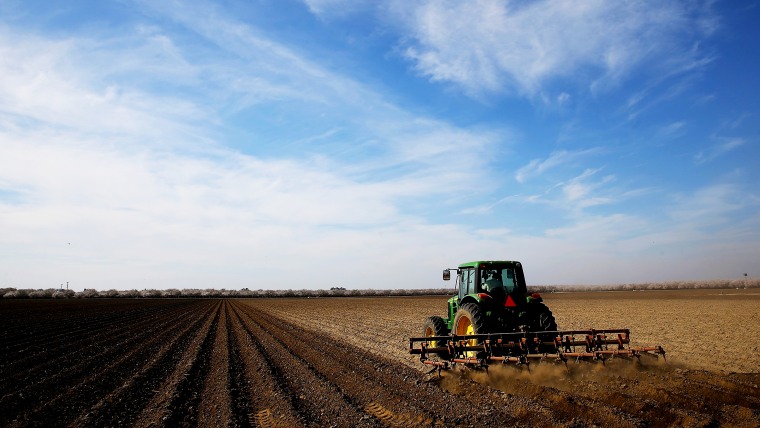For reasons that were only obvious to him, Donald Trump declared yesterday, "Tariffs are the greatest!" It's not difficult to find struggling farmers, who've been hit hard by the president's trade policies, who strongly disagree.
The initial line from the White House was that farmers simply wouldn't mind shouldering the burden. Trump himself has conceded his plan may cause "pain" for some Americans, but he believes they're willing to take one for the team. "I tell you, our farmers are great patriots. These are great patriots," the president said in April. "They understand that they're doing this for the country."
As we discussed at the time, in context, "this" appeared to mean "putting their business and livelihood" in jeopardy, confident that the president's plan would eventually pay off.
The new line, however, is to give these farmers a $12 billion bailout, as announced yesterday by Trump's Agriculture secretary, Sonny Perdue.
The aid, which will be awarded to soybean, cotton, dairy, corn and hog farmers, as well as others, is scheduled to go into effect around Labor Day, officials said. Lawmakers from both parties, however, ripped the program, with many bashing it as another negative consequence of the president's trade actions.Officials said the aid would be delivered in three ways: Direct assistance, for producers of soybeans, cotton, dairy, corn and hogs; a food purchase program under which the government will buy surpluses of beef, legumes and other products; and a trade promotion program.
There’s still some question as to where the Trump administration found the $12 billion, but officials said the plan will not require approval from Congress. And for the White House, that’s important -- because if the president asked lawmakers to spend the money, they probably wouldn’t sign off on this plan.
Sen. Ben Sasse (R-Neb.), one of several Republican critics of Trump's gambit, told NBC News yesterday, "You choose a war of choice, which is what this trade war is, and then you say afterward, let's just solve it by buying people gold plated crutches? The farmers and ranchers of America, they don't want crutches, they want to work."
It's not an unexpected reaction. A staple of Republican economic thought is that the public sector shouldn't be responsible for choosing winners and losers in the private sector. And yet, there's Trump, taking steps that are hurting one critically important part of the economy -- the farming industry -- and then trying to offset the harm of his agenda by ordering a taxpayer-funded bailout.
In March, the president insisted that trade wars are "good" and "easy to win." If he still believes this, he isn't paying close enough attention.
